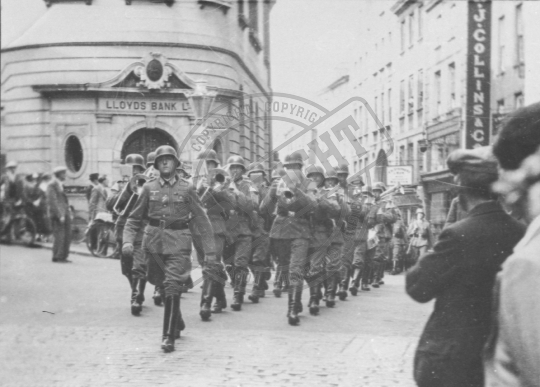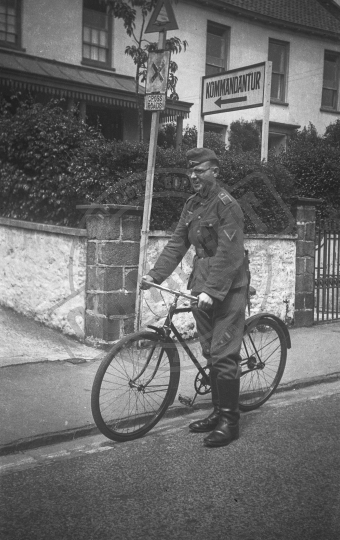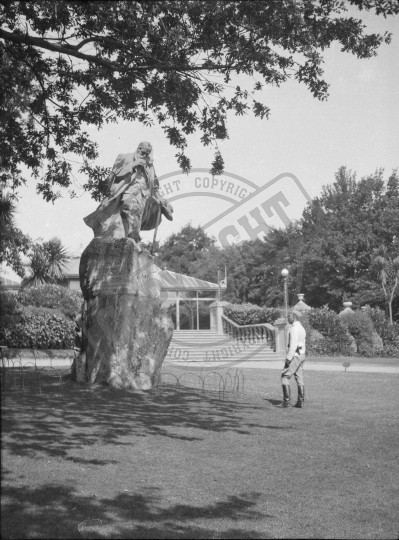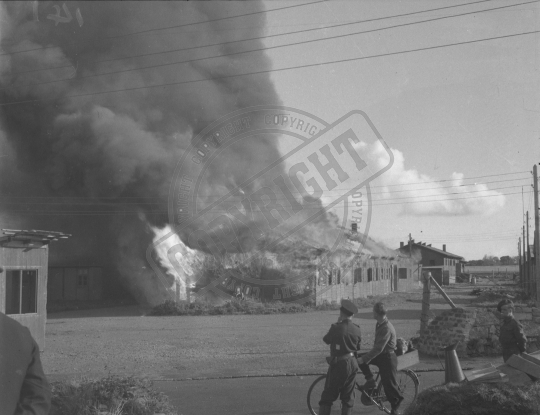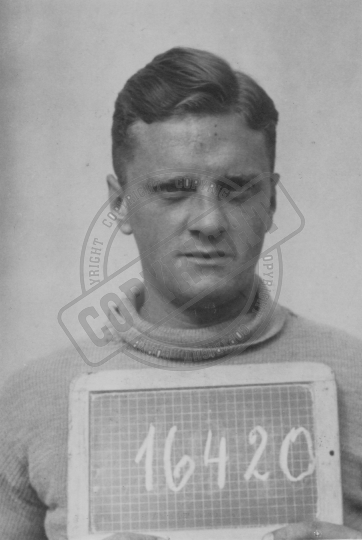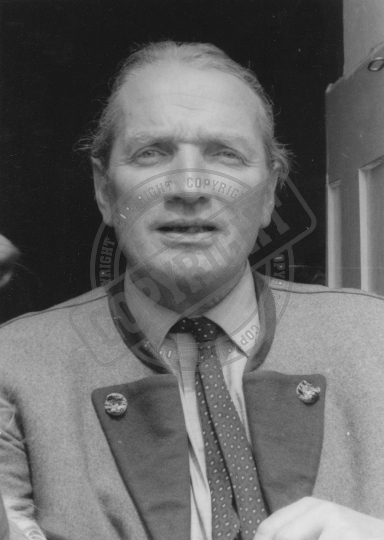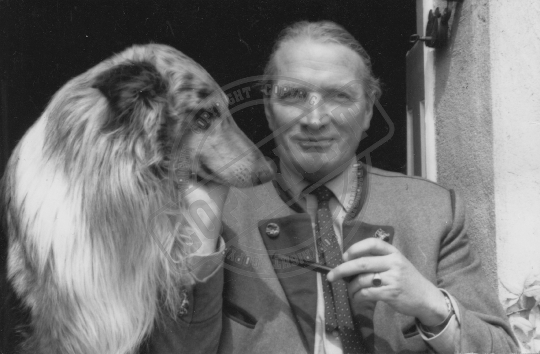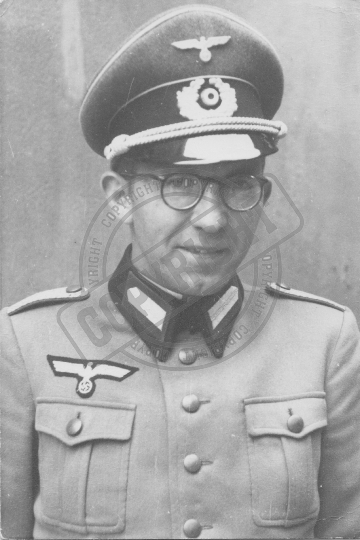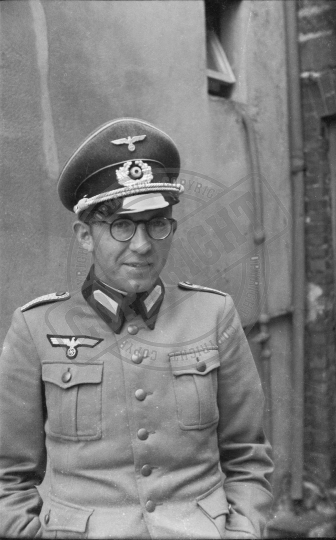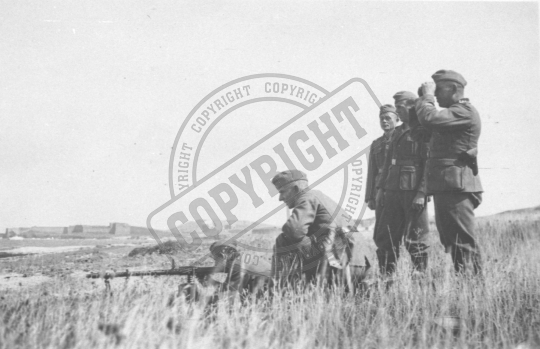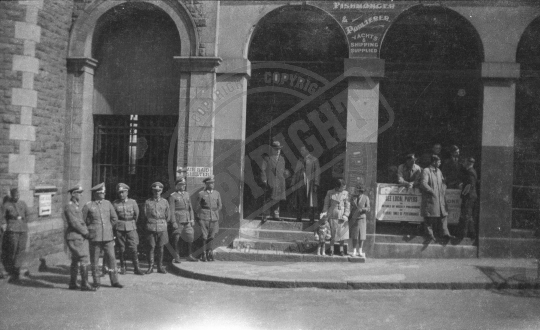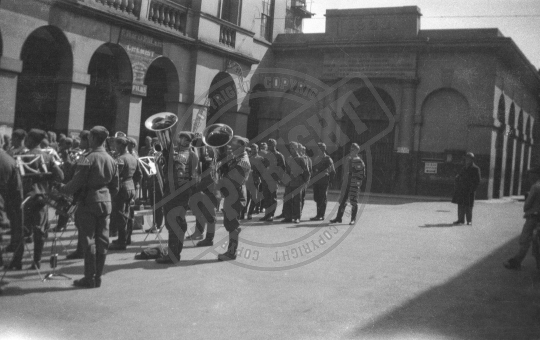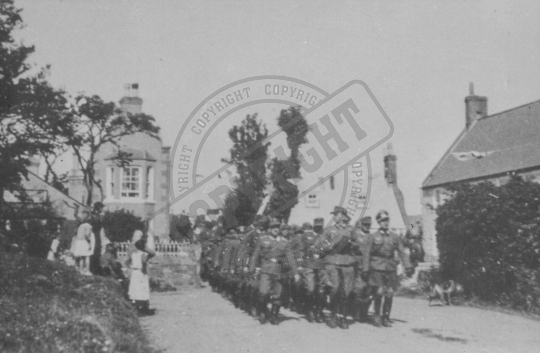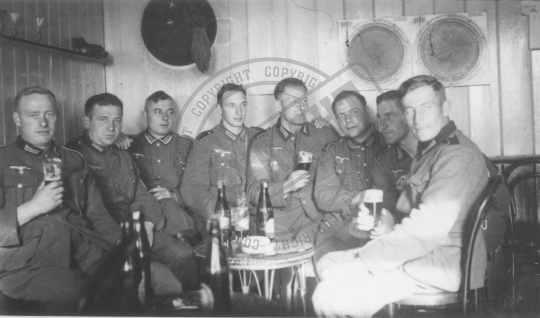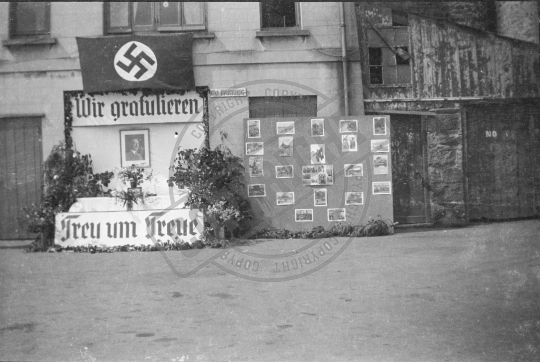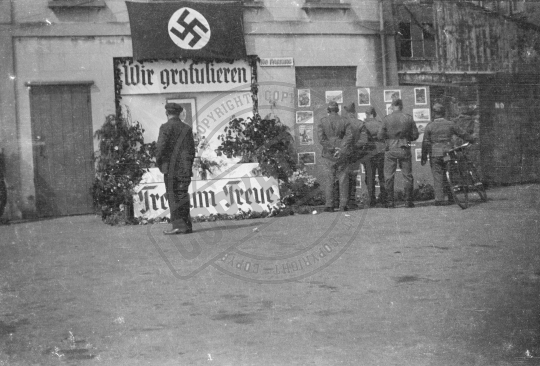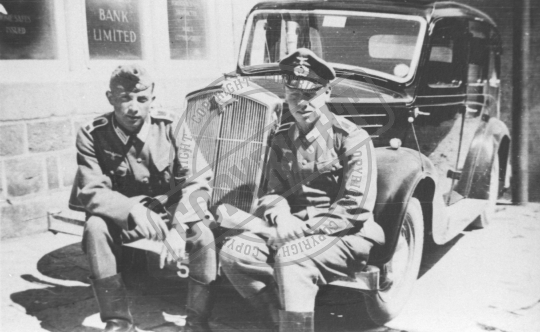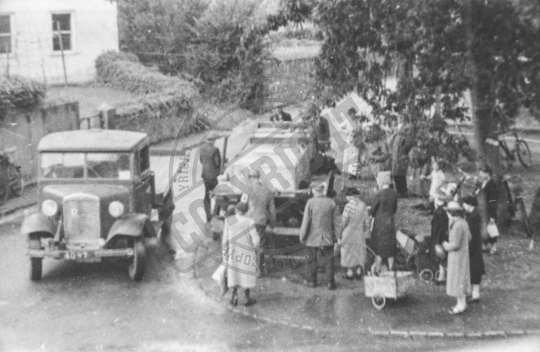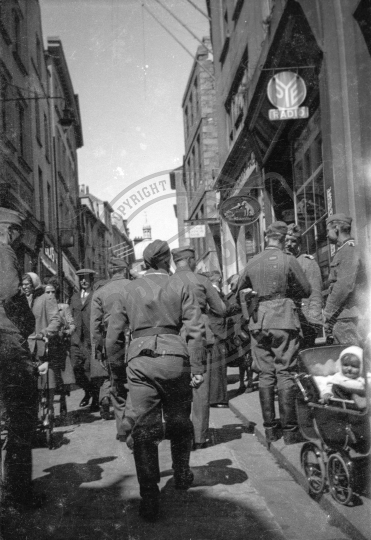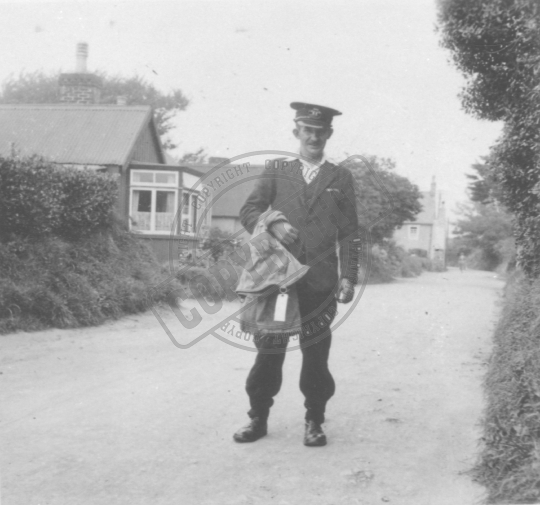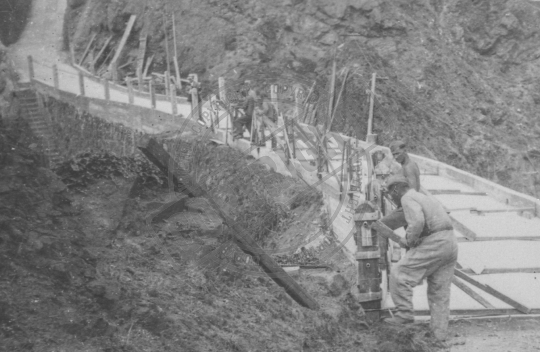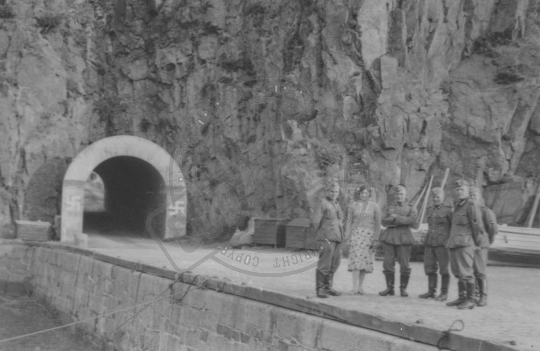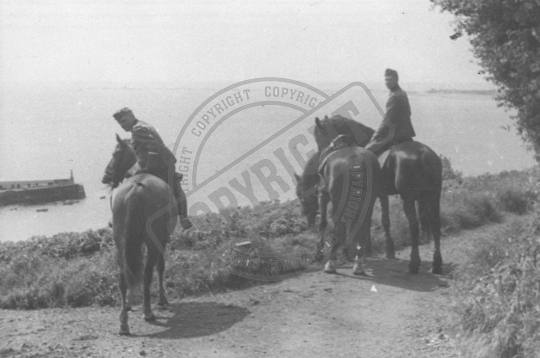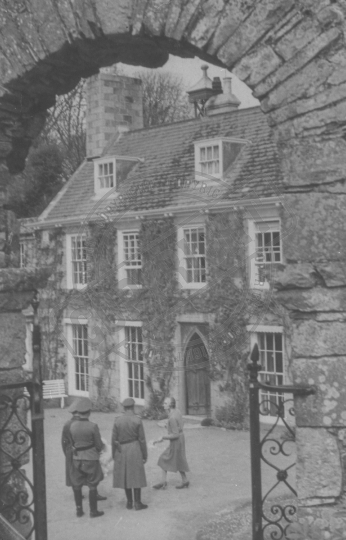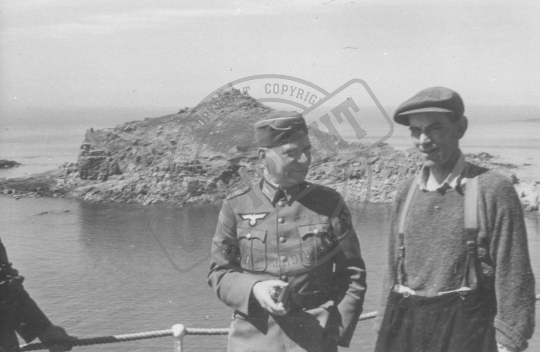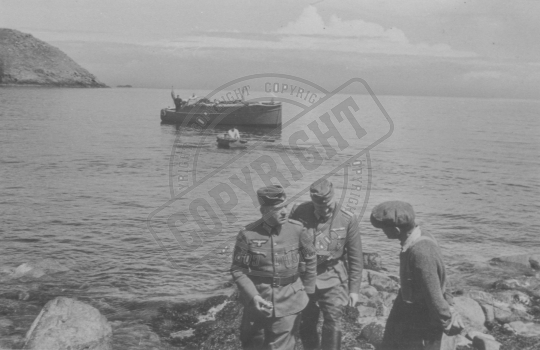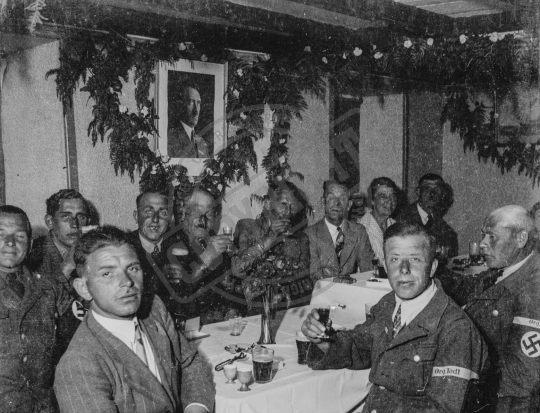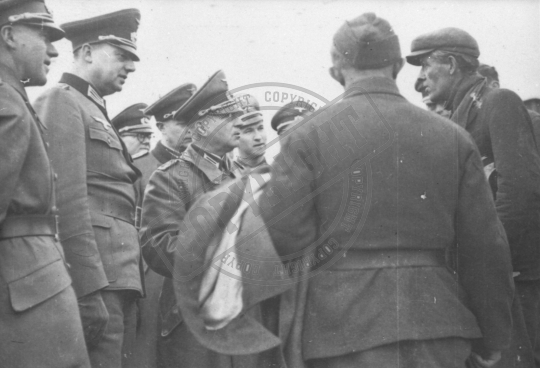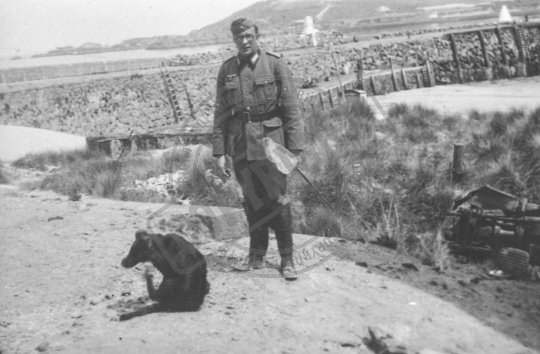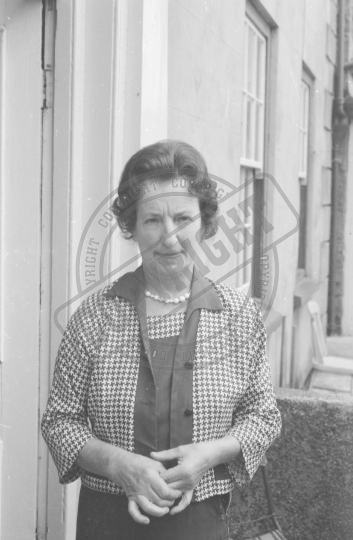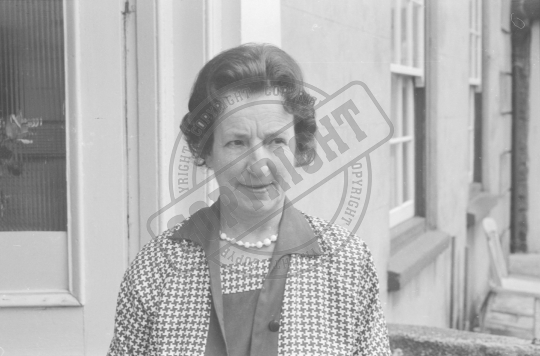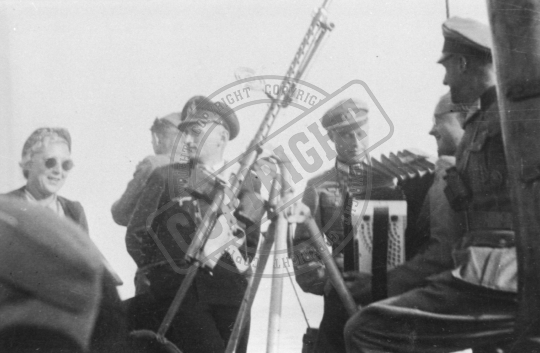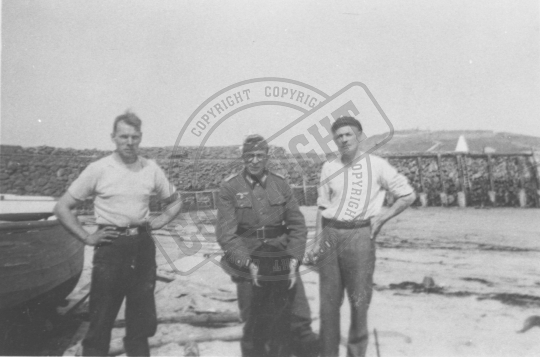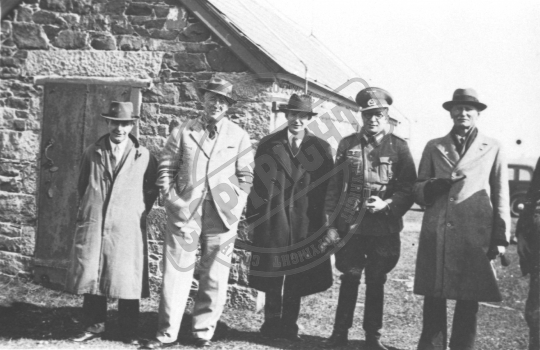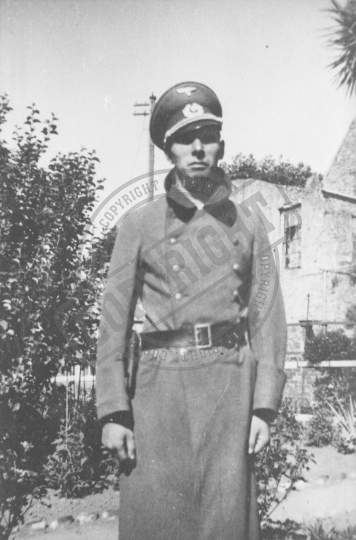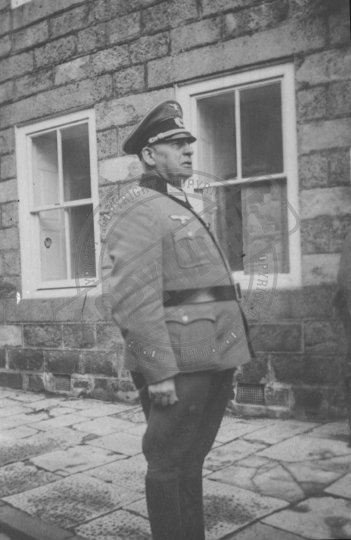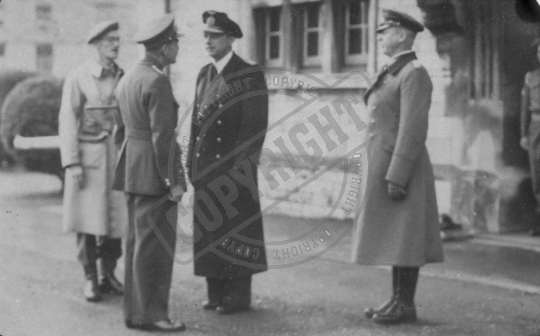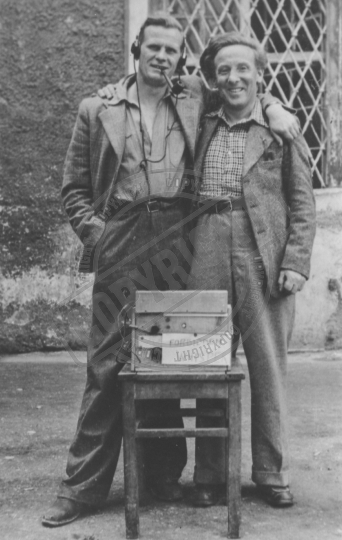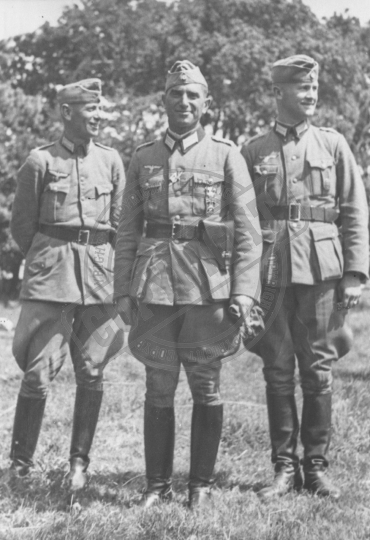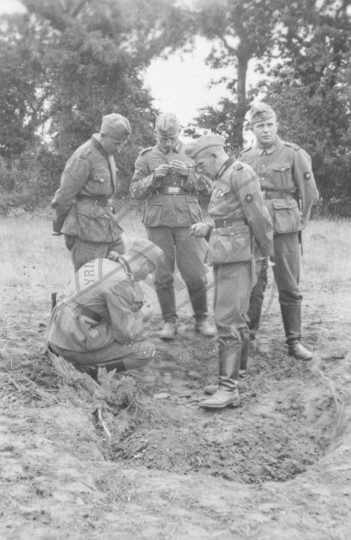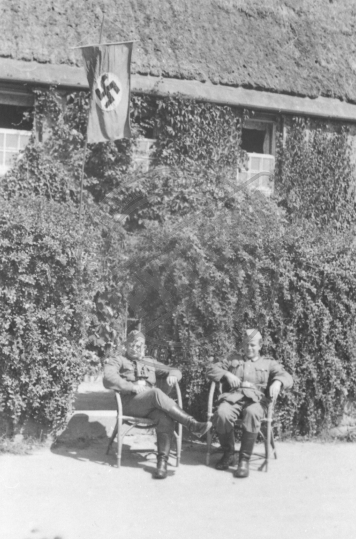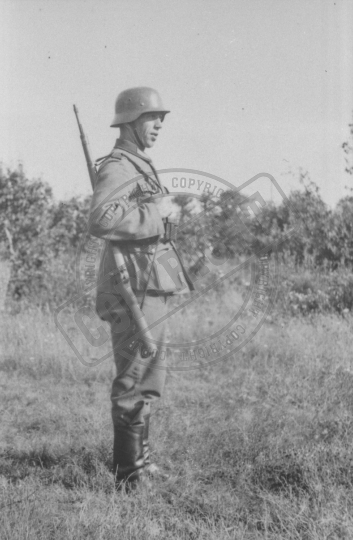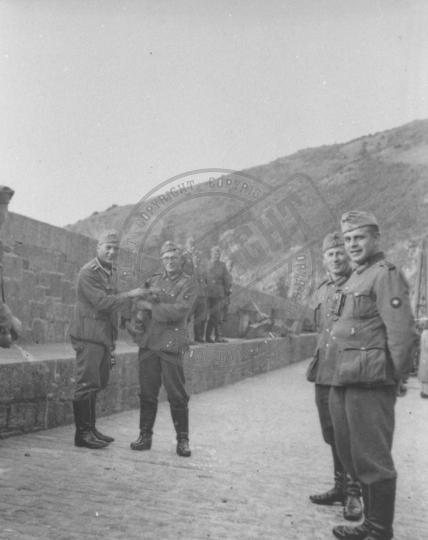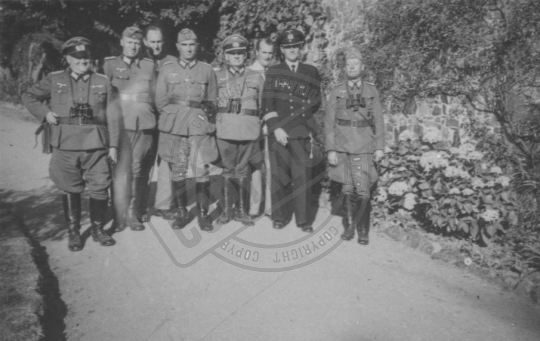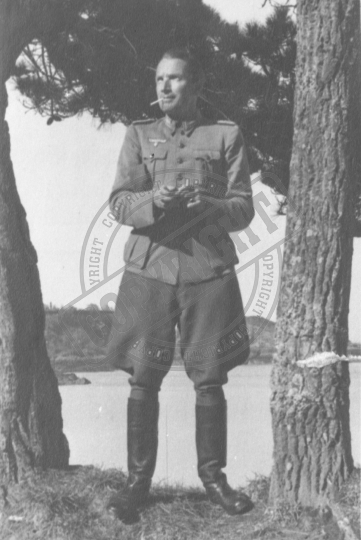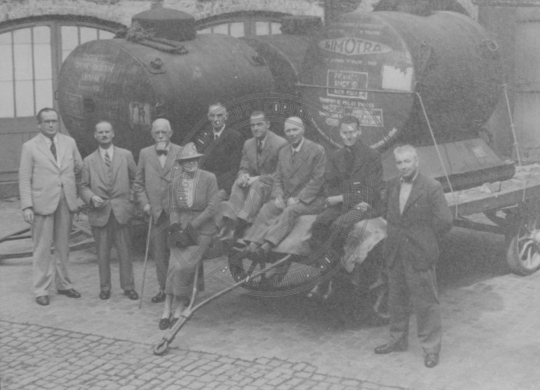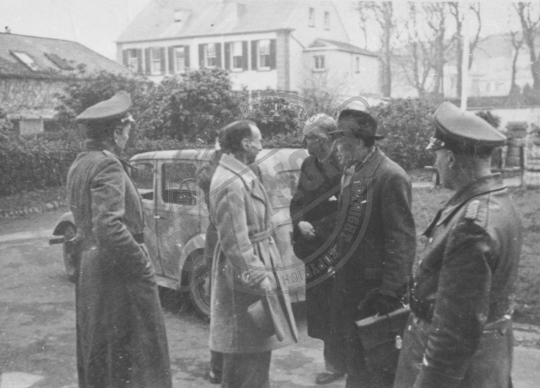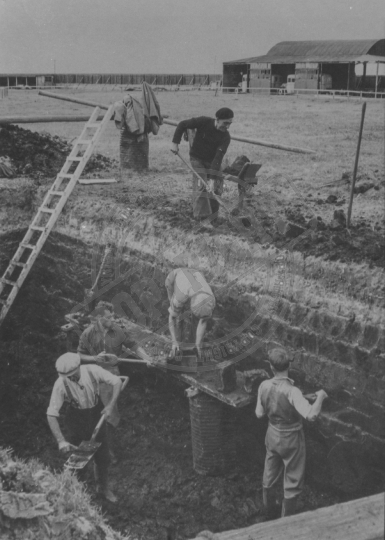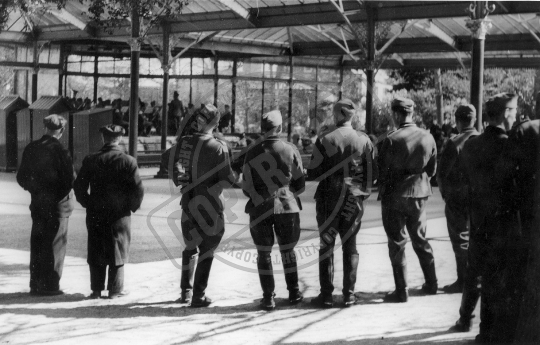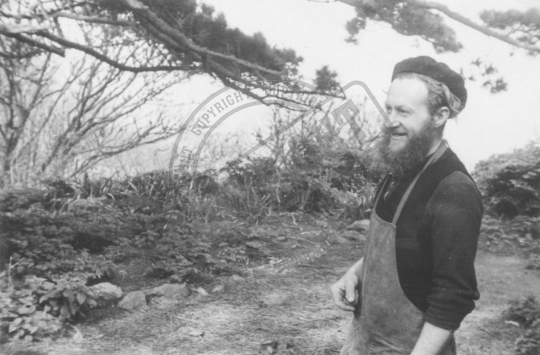Results (598)
TPL_00384
This well-known photograph used for propaganda shows a German military band marching past Lloyds Bank at the foot of Smith Street in St Peter Port, Guernsey. This image shows the head of a column of troops approaching the High Street.
TPL_00374
A German NCO outside the Kommandantur Office in Jersey with one of the bicycles that were requisitioned during the occupation under Article 53 of the Hague Convention despite considerable protests.
TPL_00373
A German stands in front of the Victor Hugo statue in Candie Gardens, Guernsey. The 9,800kg limestone statue was made in 1913 by French sculptor Jean Boucher. It was transported from Paris to Cherbourg and then to Guernsey by steamboat before it was officially unveiled on 7 July 1914.
TPL_00372
Lager Ursula, a former Organisation Todt labour camp, at La Rue Sauvage, St. Sampson's, Guernsey. It was decided that as many buildings were infested, it was more expedient to burn the structures down than disinfect and disassemble.
TPL_00357
Britain’s first commando and one of Guernsey’s most respected war heroes, Lieutenant Hubert F. Nicolle, twice landed in German occupied Guernsey on spying missions. He spent his twenty-first birthday in solitary confinement, in the notorious Cherche Midi Prison located near Paris, under sentence of death by firing squad.
TPL_00356
Baron Max Von Aufsess, Civil administrator for three and a half years in Jersey. Photo taken post war at Schloss Aufsess, Bavaria.
TPL_00355
Baron Max Von Aufsess, Civil administrator for three and a half years in Jersey. Photo taken post war at Schloss Aufsess, Bavaria.
TPL_00354
The press censor Sonderfuehrer Kurt Goettmann appointed on the 27th January 1942 at the age of 32. His previous experience included working in press offices in both Paris and London. The censor role was to ensure that anything published followed the stringent rules set out by the Germans.
TPL_00353
The press censor Sonderfuehrer Kurt Goettmann appointed on the 27th January 1942 at the age of 32. His previous experience included working in press offices in both Paris and London. The censor role was to ensure that anything published followed the stringent rules set out by the Germans.
TPL_00303
Target practice using an MG34 on Platte Saline in Alderney during the summer of 1942. Fort Albert can be seen in the background.
TPL_00302
German officers listen to a band playing in Market Square, St Peter Port. Note the air raid shelter sign on the wall.
TPL_00300
A Sergeant and ten soldiers took over Sark at the beginning of the occupation, at the end there were almost three hundred. This image shown German troops marching along the Avenue.
TPL_00299
During the early days of the occupation German troops found Sark public houses well stocked with beer and spirits. Soldiers always removed their belts and sidearms when on licenced premises.
TPL_00297
German soldiers take a moment to look at the display in St Peter Port on Hitler`s birthday in 1942.
TPL_00296
Corporal Forst and Sergeant Major Ertel photographed outside Lloyds Bank in Alderney 1941.
TPL_00295
People queuing at the junction of the Rohais and La Foulon to collect rations of sea water in which to boil food as salt was unobtainable.
TPL_00294
German forces made a mad rush for the well stocked shops in the early days of the occupation. Here we see both Germans and civilians in the High Street, St Peter Port, Guernsey.
TPL_00293
Percy Brown, Sark`s postman delivering mail on August Bank Holiday, one month after the German Occupation of Sark.
TPL_00292
La Coupee, the narrow road linking Sark with Little Sark was in such a bad state of repair that the Royal Engineers used German prisoner of war labour to reconstructed the complete road in concrete.
TPL_00291
A group of visitors to Sark in 1940, note the swastika painted at the tunnel entrance leading from Creux harbour.
TPL_00290
German officers of Feldkommondantur 515 riding some of the fine German horses imported into the islands during the Occupation, overlooking Gorey Harbour, Jersey.
TPL_00289
Mrs Sibyl Hathaway talking to three German officers who have called on her at La Seigneurie in Sark where she remained throughout the occupation.
TPL_00288
Oberst (Colonel) Knackfuss, Guernsey Feldkommandantur, with Mr. G.MacDonald, caretaker of Jethou.
TPL_00287
Oberst (Colonel) Knackfuss, Guernsey Feldkommandantur, with Mr. G.MacDonald, caretaker of Jethou.
TPL_00285
German Officers in Alderney. Oberst Knackfuss (with monocle) with other officers and what appears to be a forced labourer.
TPL_00284
Sonderfuehrer Hans Herzog and his dog Lux seen here at the old harbour in Alderney whilst out catching shrimps.
TPL_00283
Mrs Winifred Green, a waitress at the Royal Hotel, who was imprisoned for four months at Caen for saying "Heil Churchill".
TPL_00282
Mrs Winifred Green, a waitress at the Royal Hotel, who was imprisoned for four months at Caen for saying "Heil Churchill".
TPL_00281
German personnel and their guests on the way to the Casquets for an outing in the summer of 1941.
TPL_00280
Peter Doyle, Sonderfuehrer Herzog and George Pope a fisherman and pilot, photographed in Alderney.
TPL_00279
Hans Herzog, second from right and German officials seen here with C.F. Hutchesson on the far right.
TPL_00277
Oberst (Colonel) Schumacher of Feldkommondantur 515 based in Jersey seen here outside Lloyds Bank Alderney May 1941.
TPL_00276
Vizeadmiral Fredrich Hueffmeir and Generalmajor Rudolf Wulf are seen here after the German surrender when they arrived in Plymouth on 12th May 1945.
TPL_00275
Frank Stroobant with Fred Williams and the 'Silent Whisper' at Laufen, after their Liberation, in April 1945.
TPL_00274
The Commandant Dr Lanz (middle) with Lieutenant Muller (left) and Dr Maas (right) shown here in Sark.
TPL_00273
Several bombs were dropped on Sark by British aircraft, these German soldiers are excavating the remains of a bomb that fell in the garden next to the Vicarage.
TPL_00272
Soldiers relaxing outside the Bel Air Hotel, the German headquarters in Sark until it was accidentally destroyed by fire caused by careless use of a paraffin stove.
TPL_00269
Major Lanz seen here fourth from left with a group of army and navy officers at Harbour Hill in Sark.
TPL_00268
Platzkommandant Hans Max Baron von Aufsess held the key position of Head of Civil Affairs of Feldkommondantur 515, in Jersey.
TPL_00266
At the Hotel Metropole, site of the military headquarters in Jersey, a meeting took place before the Red Cross cargo was unloaded. Baron von Aufsess, Colonel Iselin, Duret Aubin and the Bailiff Coutanche were all present.
TPL_00265
In 1940 it was soon evident there would be a shortage of domestic fuel so many tons of peat were dug from a bog at Vazon in Guernsey and St Ouen`s Bay in Jersey.
TPL_00263
Mr F.M Dickson who was caretaker in Herm during the Occupation, the Germans referred to him as Robinson Crusoe.



